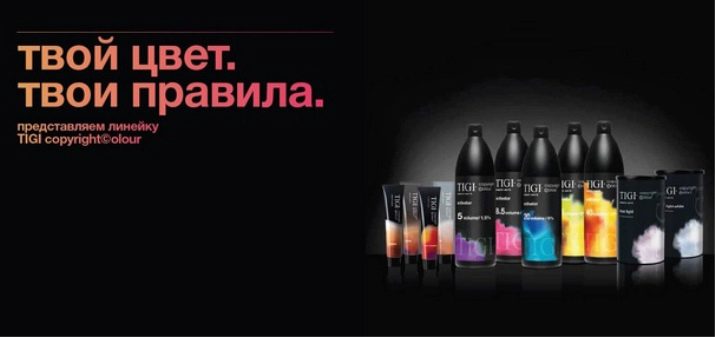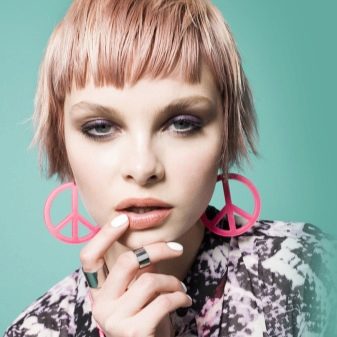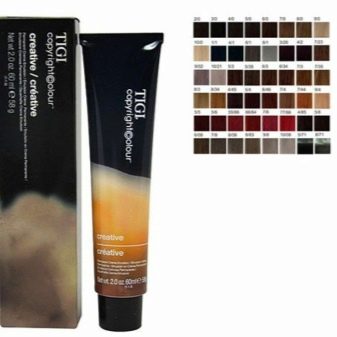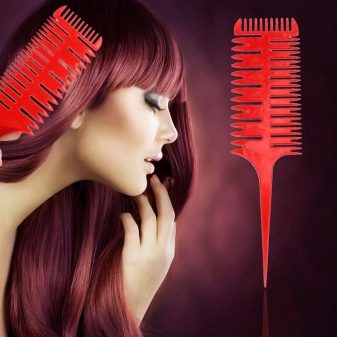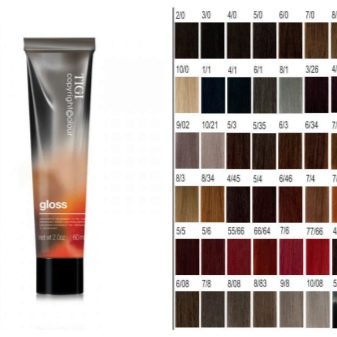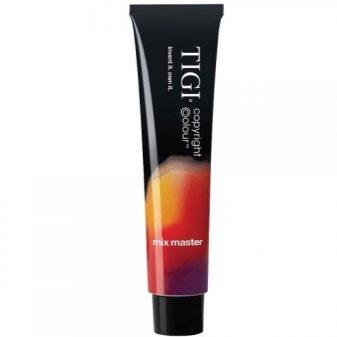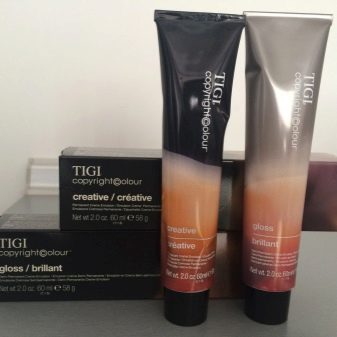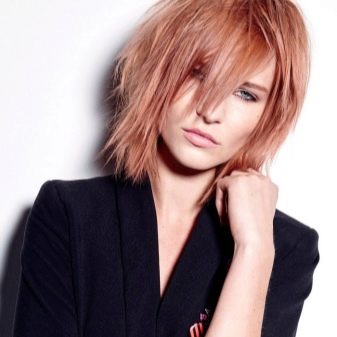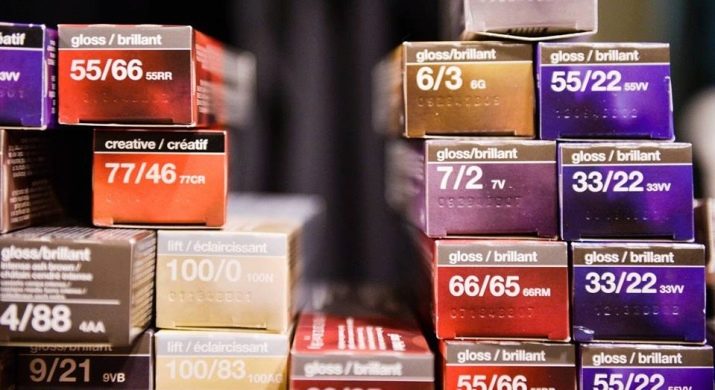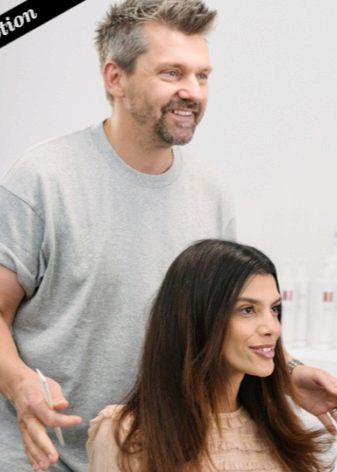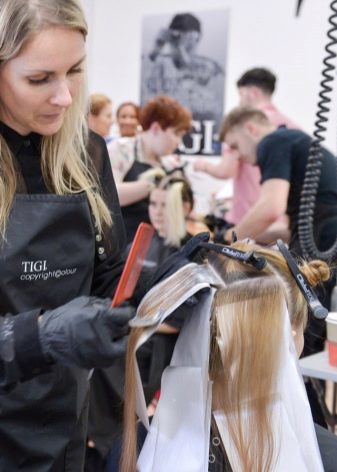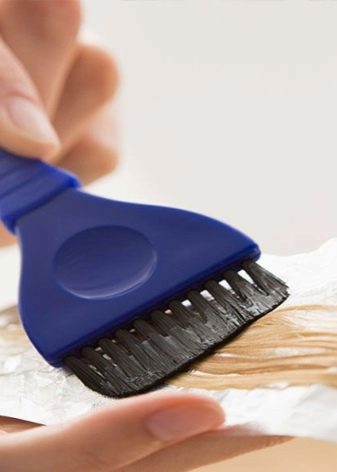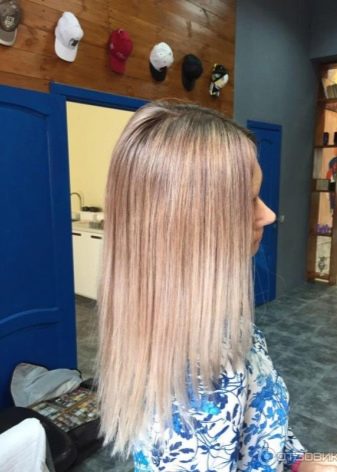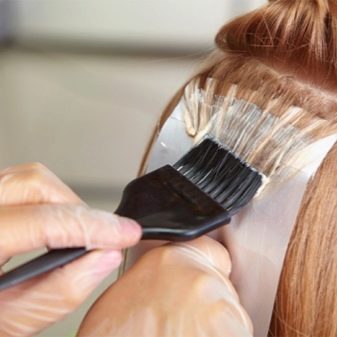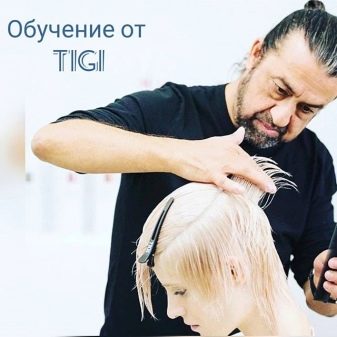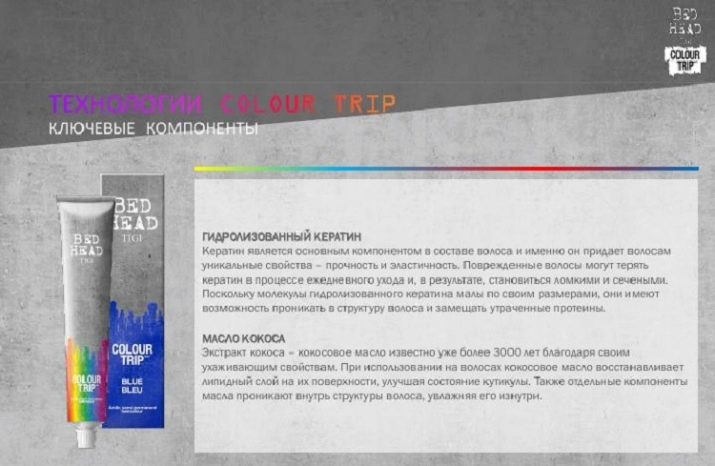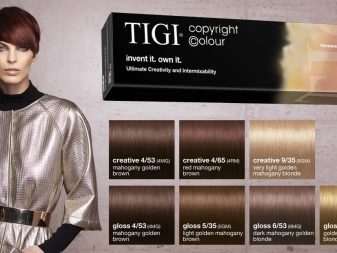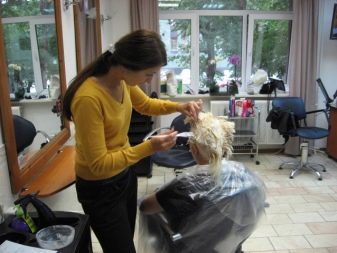This brand comes from the UK, which is an indicator of quality, since European production enjoys a good reputation all over the world. Hair dye TIGI has differences in its properties and the final effect.
Product lines
TIGI hair cosmetics are marketed with four color lines. Their differences are both in the palette of funds provided, and in their functions.
TIGI COLOURCREATIVE
This line for coloring will suit those who wish to change image in more "courageous" party. It is represented by platinum, lilac, purple hues, tones of pink. There are also natural colors. The advantage of this line can be considered such properties of paint as a sufficient amount of painted gray hair (70%). As well as color stability (20 washings) and the ability to create different colors for blondes.
TIGI GLOSS
This line does not contain ammonia, so it is most often used for coloring in tone. Its main advantages are that it is able to paint over any gray hair, while the rate of flushing is very low.
Such lines of paints provide a huge range in the choice of colors: from the usual tinting to a complete change in color.
TIGI MIX MASTER
The next line has a cream paint structure. It is suitable for those who need tone control. It may also be suitable for full lightening or dyeing hair. The advantage of this color is that it does not violate the structure of the hair itself, although it can completely change the hair color. The most important feature is the maximum use of paint at a time. This texture does not stick to the hands and, therefore, the product falls only on the curl. The volume of the product allows you to use it once, without leaving some of the paint in the tube.
TIGI CREATIVE
And the last line of this brand is the products that guarantee the complete painting of gray hair. Its advantage is that in this line, preference is given to natural and pastel tones.
As a result of staining the client gets lightening, shine curls and shine.
What do the numbers on the package mean?
Some buyers are confused when they see the numbers on the box. Most often the number on the package consists of three numbers:
- the very first denotes the depth of hue, the amplitude of ten numbers (from 1 to 10);
- second number - the main shade;
- the third - secondary - often it is determined by part of the base.
Features of application for unpainted curls
Unpainted locks are distinguished by the fact that extraneous components have not yet interfered in their structure. Therefore, the use for them is recommended otherwise.
- For a special shade, it is allowed to use two types of paint. It is necessary to mix with a viscous oxidizer TIGI Gloss 5 vol. (1.5%), 8.5% by volume (2.55%) or 20 vol. (6%).
- The first step is to apply paint to the roots and only then, successively, to the tips of the curls.
- Keep on hair no more than a third of an hour.
Features of application for clarification of hair
Some products may contain ammonia. Depending on the composition of hair dye products, instructions for use may have its own nuances. In this situation, you need to apply paint from the tips. Paint over the curls up to 2.5 centimeters from the hair follicles, leave for 20 minutes. After that, apply the mixture to the hair roots, and why leave it for another quarter of an hour.
If the hair has already been dyed earlier, has a hard structure or gray hair, then it is necessary to increase the processing time of curls with paint, making sure in advance that the correct shade is present.
When dyeing gray hair should be mixed fourth part of the hair dye natural shade of hair with the third desired color. To restore the color of gray hair, give it a more voluminous and radiant color, it is recommended to mix the TIGI copyrightcolour creative and gloss product.
General instructions for use are simple: TIGI hair dye is mixed in a non-metallic dish with a dry brush. After thoroughly mixing all the products, it is necessary to apply the mixture on unwashed, dry hair.
The composition of paints TIGI
The content of paints has both common components and different. Most paints contain:
- natural oils - they give hair shine and shine, allowing you to keep the hair structure intact and intact;
- useful vitamins not traumatic surface of the hair;
- It happens that the composition of the products of this brand ammonia included: It contributes to lightening and full discoloration of the curl.
Customer Reviews
Most of the users of this brand advises the product to customers and gives the highest rating. Such advantages as quality of hair after painting are noted. But there are also disadvantages: the inability to purchase in the store, as well as the high cost.
Those who use TIGI cosmetics for more than 3 years, argue that for such a long period of time cosmetics for hair dye did not disappoint. The slogan of this company “Cosmetics, created by hairdressers and for hairdressers” fully justifies itself, since the product is used mainly in various beauty salons and professional hairdressing salons.
It is also noted that using TIGI inks produces a rather pleasant effect: the shine and palette of the hair color, the chosen “warmth” of the tone looks harmonious.
A pleasant feature of this brand is the specific smell of paint, which is significantly different from the usual sharp, unpleasant aroma.
Despite this number of advantages, the paint is washed out very quickly, so the effect of brisk hair will not last long. For most buyers, this is not a problem, since all tinting agents have a similar defect.
To learn how to make a color paint TIGI, see the video below.

